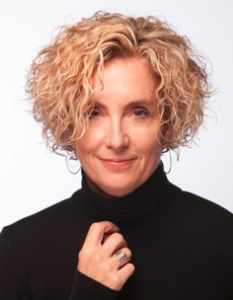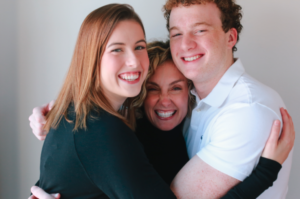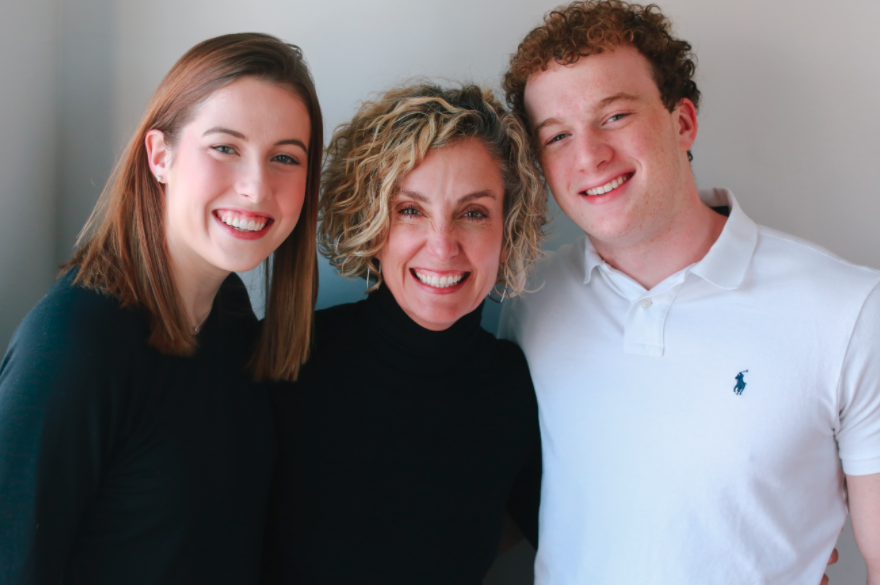Psychotherapist Michelle Gambs Has Unique Perspective on Parenting
Photography Provided
 Experts say parenting does not actually begin until a child begins to talk, around age 2; don’t shoot the messenger, as this detail is accepted by psychologists like Michelle Gambs, an author and psychotherapist who focuses her practice on parents with children ages 2 to 12.
Experts say parenting does not actually begin until a child begins to talk, around age 2; don’t shoot the messenger, as this detail is accepted by psychologists like Michelle Gambs, an author and psychotherapist who focuses her practice on parents with children ages 2 to 12.
“Real parenting starts when [children] can speak, for once they begin to talk, parents need to up their game and the real parenting begins,” states Gambs, a mother of two children who are now ages 22 and 24. “God designed it this way – the first two years are designed to totally fall in love with this child, and the rest of their life you draw upon that. As parents, we have the greatest impact up to age 12 because after that, peers get promoted and parents get demoted.”
Yikes…
Before we all freak out, Gambs has been in private practice for more than 20 years. She’s an experienced public speaker who has taught a course on parenting three times per year for 20 years (the course is available online via her website). She has done countless corporate lunch-and-learn events, and has a calming presence. Gambs is well-regarded as a top parent-child psychotherapists, and yet she strongly encourages parents to take the course to avoid becoming a client. They can also gain an upper-hand by educating themselves with a parenting guide book which can be found online.
“If I teach parents how to handle their role to the best of their ability now, I won’t see their kids later in therapy, which is essentially working myself out of a job,” says Gambs, who is originally from Lafayette, Indiana, and graduated from the University of Notre Dame.
Gambs lived in Houston for a decade while raising two young children. Her family made the decision to move closer to other family members, so they relocated to Indianapolis. Within a couple years after moving back to Indiana, Gambs had her license to practice (there is no license reciprocity with Texas) and opened her private practice in Broad Ripple Village, not far from her home.
“Parenting is hard and it was not natural for me,” Gambs says. “The course that I teach, I had originally taken as I became a new mom, and it totally changed my life.”
What Gambs learned about herself, and what makes people appreciate about her, is that she makes them feel safe. Her clients come to her to get educated because they don’t have all the answers. She makes them feel safe, heard and entertained, by sharing stories that illuminate tough situations. Gambs has a practical approach and shares actionable items to help her clients.
Her first point is that it’s important to be both firm and kind.
“Your kids don’t need you as a friend,” states Gambs, who recently released her book “Stay Away From Option D.” “Grandparents have the luxury of being only kind. Parents do not.”
 In her book, Gambs advises staying within the space of what she designates as A, B, and C parenting zones. A is the ideal option – being happy, kind and firm. It is the one most of us need to learn. B is the “good enough” option. C is the “do no harm” option, and involves walking away from frustrating situations with your child to offer space to cool off. D involves yelling, spanking or shaming a child. She stresses that it is crucial for parents to avoid option D.
In her book, Gambs advises staying within the space of what she designates as A, B, and C parenting zones. A is the ideal option – being happy, kind and firm. It is the one most of us need to learn. B is the “good enough” option. C is the “do no harm” option, and involves walking away from frustrating situations with your child to offer space to cool off. D involves yelling, spanking or shaming a child. She stresses that it is crucial for parents to avoid option D.
Like many books, “Stay Away From Option D” was a labor of love. It was a decade in the making and it is exactly what she prescribes for her clients. Her main message is that we do not have to be perfect – as parents, we need to offer ourselves grace. She also touts quality over quantity when it comes to time spent with our children. Gambs advises quality connections and quality time by being fully present with our children for sincere connection, instead of focusing on quantity.
Children will get their needs met, either positively or negatively. Being separated during a pandemic creates its own challenges with this. Gambs shares the five key needs of children that need to be met – belonging, love, power, feeling special and important, and experimentation and exploration.
“It’s a myth that love is enough – it’s not enough,” Gambs says.
Since she is able to walk her talk, Gambs felt she had the credibility to counsel parents of teenagers and teens after she had experienced that phase with her own children. Gambs states that parenting teens is a whole different beast.
“You become the wallet and the ride, and you are supposed to like it,” she says. “Parents are heartbroken about it. I was.”
The experimentation and exploration phase can be life-altering and possibly permanent with teens. They are trying to get their needs met, and may explore drinking, drugs and sexuality.
“They will get these needs met appropriately or inappropriately, whatever we train them to do,” Gambs says.
At the bottom of her official website, Gambs writes, “I never said it would be easy. I only said it would be worth it.”
For more info, visit michellegambs.com.





